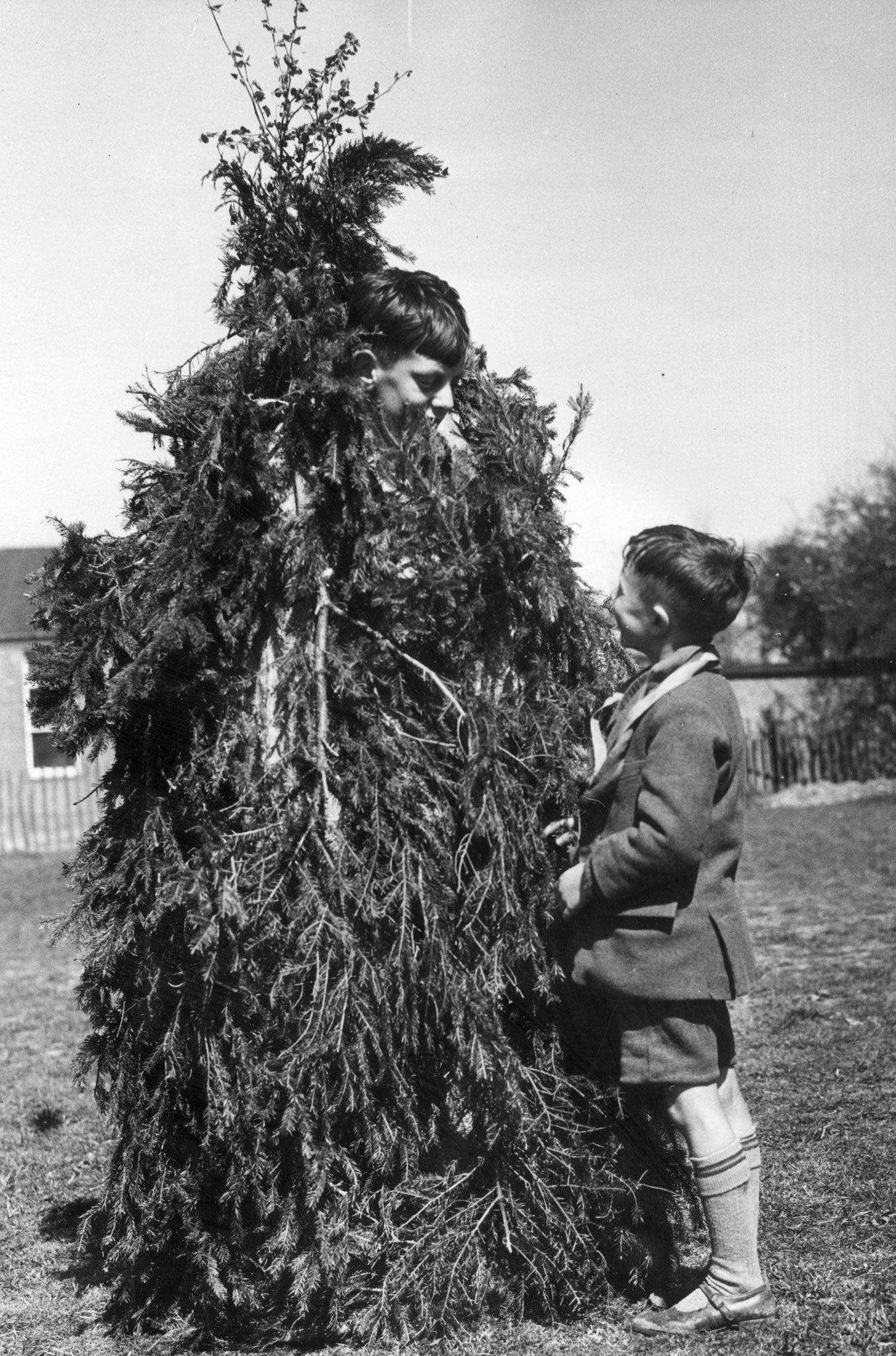Rhodri Marsden's Interesting Objects: Jack in the Green
The mobile foliage is the climactic moment of a traditional May Day procession

* If you're wandering around the northern part of Bristol at 4pm today and you see a large bush making its way unaided on to Horfield Common, don't worry: you aren't losing your marbles. If you then see a crowd of people stab the bush with sticks, don't alert the authorities to this wanton act of violence; it's merely the climactic moment of a traditional May Day procession (well, the first Saturday in May at least) featuring mobile foliage, also known as Jack in the Green.
* May Day celebrations have been traditional for centuries, whether they're acknowledging the arrival of summer, honouring hard-working folk, or both. Participants in London processions during the 16th and 17th centuries would drape themselves in garlands, and this custom eventually became competitive. Chimney sweeps took things to absurd extremes, probably in the hope of getting bigger donations from the crowd; they began to decorate one man with so much greenery that you could only see his face. "A small window gave egress to his gaze," reads one account from the 1860s, "but one seldom caught a glimpse of the perspiring countenance within."
* As things got out of hand, "Jack" got bigger. Chimney sweeps began perpetrating this May Day tomfoolery all over the country, but as the profession lost its minimal allure in the late 19th century, Jack in the Green began to fade into obscurity. A small revival began in the 1970s, when the May Day Bank Holiday was introduced in the UK; Jack was suddenly seen lurching through Guildford, Whitstable, Oxford and other towns. Today, Jack's procession has become conflated with The Green Man and has all the hallmarks of a pagan ritual, but it all began with a bloke walking around wearing too many flowers on his jacket. You can see Jack in Bristol today, and in Hastings on Monday.
Join our commenting forum
Join thought-provoking conversations, follow other Independent readers and see their replies
Comments